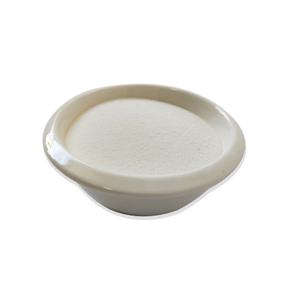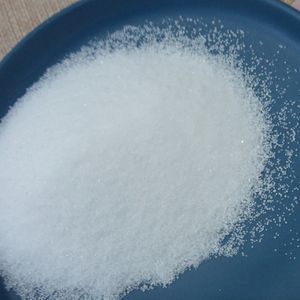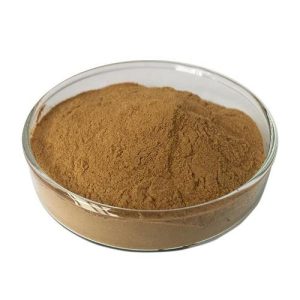Professional and high-quality metal alloys, ceramic products and concrete additives | RBOSCHCO
(What are Molecular Sieves Used For?)
What are Molecular Sieves?
Molecular sieves are materials with holes of uniform size (very small holes). These pores are similar in size to small molecules, so large molecules cannot enter or be adsorbed, while smaller molecules can. As the molecular mixture migrates through a fixed bed of porous semi-solid material called a sieve (or matrix), the components with the highest molecular weight (unable to enter the molecular pore) first leave the bed and then pass through successive smaller molecules. Some zeolites are used in size-exclusion chromatography, a separation technique that sorts molecules by their size. Other molecular sieves are used as desiccants (some examples include activated carbon and silica gel).
The pore size of the molecular sieve is measured in angstrom (A) or nanometer (nm). According to IUPAC representation, the pore size of microporous materials is less than 2 nm (20 A), and that of macroporous materials is more than 50 nm (500 A). Thus, the mesoporous category is in the middle, with pore sizes ranging from 2 to 50 nm (20-500 A).
What are Molecular Sieves Used For?
Molecular sieves are commonly used in the petroleum industry, especially for drying airflow. For example, in the liquefied natural gas (LNG) industry, the water content of the gas needs to be reduced to less than 1ppmv to prevent clogging caused by ice or methane clathrates.
In the laboratory, molecular sieves are used to dry solvents. Sieves have proven superior to traditional drying techniques, which typically use corrosive desiccant.
Under the term zeolite, molecular sieves are used in a wide range of catalytic applications. They catalyze isomerization, alkylation, and epoxidation and are used in large-scale industrial processes, including hydrocracking and fluidization catalytic cracking.
They are also used to filter the air supply for breathing devices, such as those used by scuba divers and firefighters. In such applications, the air is supplied by an air compressor and passed through a cartridge filter, which is filled with molecular sieve and/or activated carbon, depending on the application, and is finally used to fill the breathing air tank. This filter removes particulates from the breathable air supply and compressor exhaust products.
Common types of molecular sieve:
3A molecular sieve:
The 3A molecular sieve does not adsorb molecules with diameters larger than 3 A. These molecular sieves are characterized by fast adsorption speed, frequent regeneration, good anti-breakage, and good anti-pollution. These features improve the efficiency and life of the sieve. 3A molecular sieve is a necessary desiccant for petroleum and chemical industry refining, polymerization, and chemical gas-liquid depth drying.
The 3A molecular sieve is used to dry a range of materials, such as ethanol, air, refrigerants, natural gas, and unsaturated hydrocarbons. The latter includes cracked gas, acetylene, ethylene, propylene, and butadiene.
The 3A molecular sieve is used to remove water from ethanol, which can then be used directly as a biofuel or indirectly to produce a variety of products, such as chemicals, food, medicines, and so on. Due to the formation of azeotropes with a concentration of about 95.6% (by weight), ordinary distillation cannot remove all water (unwanted byproducts in ethanol production) from the ethanol process stream, so molecular sieve beads are used to separate ethanol and water at the molecular level by the following method: Adsorbed water into the beads to allow ethanol to pass freely. Once the beads are filled with water, the temperature or pressure can be controlled to release the water from the molecular sieve beads.
4A molecular sieve:
Drying solvent
4A molecular sieve is widely used in drying laboratory solvents. They can absorb water and other molecules with a critical diameter less than 4 A, such as NH3, H2S, SO2, CO2, etc. Widely used in liquid and gas drying, refining, and purification (such as the preparation of argon).
Polyester additives
These molecular sieves are used as an aid to detergents because they can produce softened water through calcium ion exchange, removing and preventing dirt deposition. They are widely used as a substitute for phosphorus. 4A molecular sieve plays an important role in substituting sodium tripolyphosphate as a detergent additive to reduce the impact of detergent on the environment. It can also be used as a soap-forming agent and toothpaste.
Hazardous waste treatment
4A molecular sieve can purify ammonium ion, Pb2+, Cu2+, Zn2+, and Cd2+ cationic substances sewage. Due to their high selectivity to NH4 +, they have been successfully applied in this field to combat channel eutrophication and other effects caused by excess ammonium ions. Due to industrial activities, a 4A molecular sieve is also used to remove heavy metal ions present in water.
5A molecular sieve:
5A molecular sieves are commonly used in the petroleum industry, especially in the purification of airflow and in chemical laboratories for the separation of compounds and drying of reaction starting materials. They contain tiny pores of precise and uniform size and are used primarily as adsorbents for gases and liquids.
The 5A molecular sieve is used to dry natural gas and desulphurize and decarbonize the gas. They can also be used to separate mixtures of oxygen, nitrogen, and hydrogen, as well as oleowax hydrocarbons, from branched and polycyclic hydrocarbons.
What is molecular sieve adsorbent?
The molecular sieve adsorbent is a crystalline aluminum silicate, known as zeolite. Its unique structure allows the water of the crystal to be removed, leaving a porous crystalline structure. These pores or cages have a high affinity for reabsorbing water or other polar molecules.
Molecular Sieves Price
The price is influenced by many factors including the supply and demand in the market, industry trends, economic activity, market sentiment, and unexpected events.
If you are looking for the latest molecular sieves price, you can send us your inquiry for a quote. (tech@nanotrun.com)
Molecular Sieves Supplier
RBOSCHCO is a trusted global chemical material supplier & manufacturer with over 12-year-experience in providing super high-quality chemicals and nanomaterials. The company export to many countries including the USA, Canada, Europe, UAE, South Africa, Tanzania, Kenya, Egypt, Nigeria, Cameroon, Uganda, Turkey, Mexico, Azerbaijan, Belgium, Cyprus, Czech Republic, Brazil, Chile, Dubai, Japan, Korea, Vietnam, Thailand, Malaysia, Indonesia, Australia, Germany, France, Italy, Portugal, etc.
As a leading nanotechnology development manufacturer, RBOSCHCO dominates the market. Our professional work team provides perfect solutions to help improve the efficiency of various industries, create value, and easily cope with various challenges.
If you are looking for molecular sieves, please send an email. (tech@nanotrun.com)
(What are Molecular Sieves Used For?)







